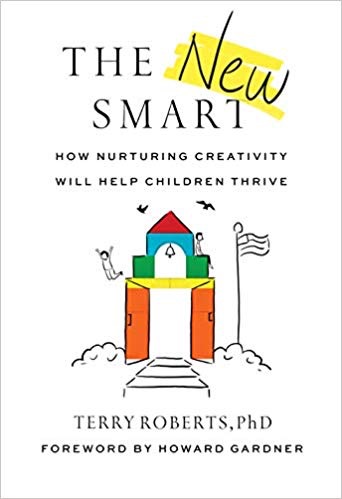By David Madden
The undemocratic, unimaginative nature of my education in Knoxville, Tennessee, was such a powerfully negative inspiration to teach high school creatively that when I was a draftee in the army during the Korean conflict, I spent a great deal of my free time in the post library studying inspiring, progressive trends in education. I felt part of a mission, and later read Dewey and newer theorists, even after I began teaching in college instead of high school.
Progressive education’s fitful history has been such that reading the proposals in The New Smart: How Nurturing Creativity Will Help Children Thrive by Terry Roberts, director of the National Paedeia Center, is intellectually exhilarating.
Roberts prophetically delineates the kinds of minds and behaviors, the “new smarts,” that will enable the young to succeed now and during the rapidly and radically changing world of the next fifty years.
Three major changes that are well underway are in the realms of marriage, employment, and residence. In the not-very-distant future, today’s students may quite likely side-step marriage and have children by multiple partners; they must be trained to shift from one kind of job to another; they will change residences often.
To survive and flourish in those three realms, citizens in the great tomorrow will be required to be myriad-minded and employ an interdisciplinary perspective. To draw upon the key terms of Roberts’ 14 chapters, throughout their lives men and women will have to be volatilely creative, supple and resilient, and individualistic while engaging in teamwork with a rich and empathetic sense of community.
In a “fractured” environment of “constant and fluid change,” people must be “ambitious and focused without being self-obsessed,” able to “use their own marginality to generate a novel perspective and new work,” and be able to achieve “creative mastery.” They must be “risk takers.” “They will be measured by what they produce over the course of their lives, not by any static notion of capacity or quotient,” such as present-day IQ and scholastic tests.
In pursuit of an existential, “interminable liberal education,” men and women twenty year old today may envision seventy or more years of a multifaceted, adventurous life.
David Madden’s latest work is The Voice of James M. Cain, an innovative biography. At 86, he has three other books well underway. David Madden (ΦBK, University of Tennessee) is Robert Penn Warren Professor Emeritus, LSU.




